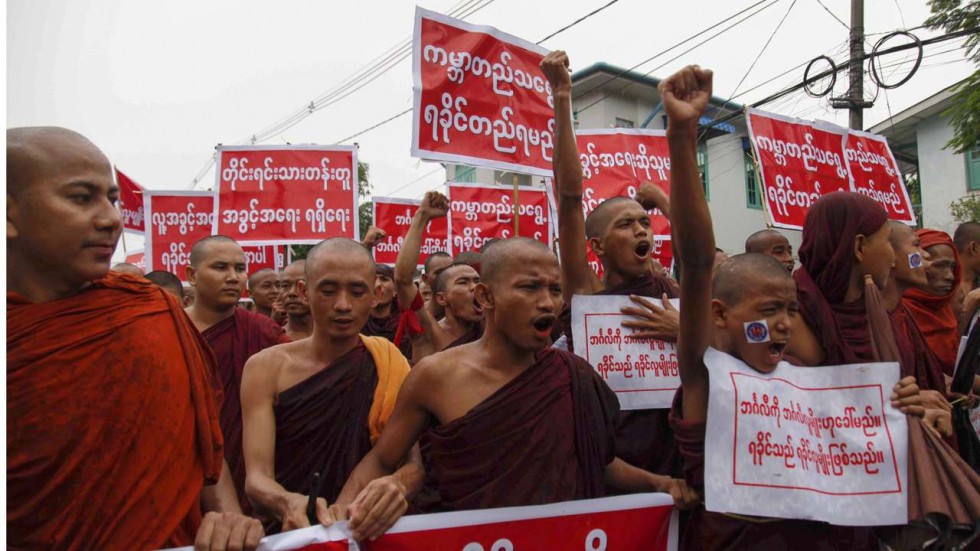AhlulBayt News Agency - Anti-Muslim Buddhists held protests in Myanmar Sunday against a government decree that orders officials to use “Muslim communities in Rakhine State” when referring to the Rohingya.
The demonstrations were held in over 15 towns in the western state of Rakhine, including its capital, Sittwe, in a show of opposition to the recent edict by the government, which has been issued in an attempt to contain sectarian tension.
“We reject the term 'Muslim communities in Rakhine State',” said Kyawt Sein, the protest organizer in Sittwe.
Myanmar’s government refuses to recognize the Rohingya as citizens. They have been denied Myanmar citizenship since a new citizenship law was enacted in 1982.
The Rohingya call themselves by this name, but Buddhists identify them as “Bengalis,” meaning they are immigrants from Bangladesh.
“Bengalis should be called Bengalis,” said Phoe Thar Lay, a leader of a local Rakhine youth group.
Hideous anti-Muslim sentiments among the radical Buddhists in Myanmar have led to numerous deadly attacks against about one million Rohingya Muslims in Rakhine. About 140,000 of the Muslims have been forced into living in overcrowded, decrepit and fetid displacement camps or even compelled to flee abroad for fear of prosecution.
Muslims living across Buddhist-governed Myanmar suffer persecution, but the Rohingya minority in Rakhine is suffering the most.
On July 1, Yanghee Lee, the UN special rapporteur on Myanmar, said Myanmar’s government should immediately end the deep discrimination practiced against the Rohingya and other Muslims in Rakhine.
She also called for the improvement of living conditions in the camps for the Rohingya and other Muslims in Rakhine, stressing that putting an end to “institutionalized discrimination against Muslim communities in the state” must be “an urgent priority.”
“The continuing restrictions on the freedom of movement of the Rohingya and Kaman communities cannot be justified on any grounds of security or maintaining stability,” Lee said.
The remarks came days after the UN warned that the Rohingya were subject to multiple forms of human rights violations, including citizenship denial, forced labor and sexual violence.
The UN also called on the administration of Aung San Suu Kyi to launch an independent and comprehensive investigation into incidents of rights abuse against the Rohingya Muslims.
Rohingya and other Muslims have faced torture, neglect, and repression in Myanmar for many years. A large number of the Rohingya are believed to have been killed and tens of thousands displaced in attacks by Buddhist extremists.
/257

